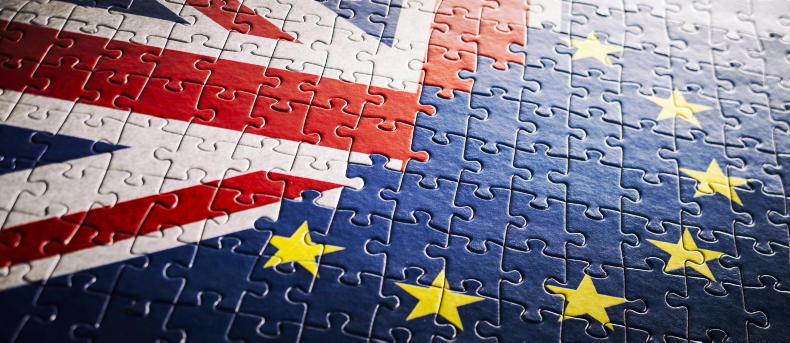The UK published its position paper on “Continuity in the availability of goods for the EU and the UK” this Monday, arguing that “goods placed on the Single Market before exit should continue to circulate freely in the UK and the EU, without additional requirements or restrictions”.
This means that the large volumes of Irish beef and cheese exported to the UK should not be regarded as new imported products overnight when the UK exits the EU on 1 April 2019. Instead, they would still be regarded as compliant with food safety and other legislation – though this does not mean they would be exempt from tariffs or administrative border checks.
The British government has said that its exit agreement with the EU should include “recognising the validity of type approvals, certificates and registrations issued prior to exit”. The UK also wants to avoid changes to labelling rules. This had been mentioned as a major potential headache by food processors in Brexit forums.
Disagreement on animal products
The British paper includes a special section on agri-food products, arguing any food or feed products first “placed or the market” before Brexit should be allowed across the border without further checks. This includes primary commodities that are later processed into more advanced products – such as sugar or frozen ingredients.
The corresponding EU paper released last month outlined similar objectives concerning mutual recognition of existing approvals and checks, including for live animals and breeding products such as semen that initiated their movement before the withdrawal date. However, Brussels distinguished “all animal-derived food and animal-derived feed, as well as animal by-products”, saying these should be subject to new import rules from Brexit day.
The UK argues that “this is likely to cause significant legal uncertainty and potential disruption”. The British paper went on to add that the agri-food sector is subject to extensive and stringent controls “particularly in respect of food and feed products from third countries,” which seems to be an effort by London to assure that the UK would not act as a back-door for imports of products from countries with lower standards.
Read more
UK proposes streamlined customs arrangement post-Brexit
The UK published its position paper on “Continuity in the availability of goods for the EU and the UK” this Monday, arguing that “goods placed on the Single Market before exit should continue to circulate freely in the UK and the EU, without additional requirements or restrictions”.
This means that the large volumes of Irish beef and cheese exported to the UK should not be regarded as new imported products overnight when the UK exits the EU on 1 April 2019. Instead, they would still be regarded as compliant with food safety and other legislation – though this does not mean they would be exempt from tariffs or administrative border checks.
The British government has said that its exit agreement with the EU should include “recognising the validity of type approvals, certificates and registrations issued prior to exit”. The UK also wants to avoid changes to labelling rules. This had been mentioned as a major potential headache by food processors in Brexit forums.
Disagreement on animal products
The British paper includes a special section on agri-food products, arguing any food or feed products first “placed or the market” before Brexit should be allowed across the border without further checks. This includes primary commodities that are later processed into more advanced products – such as sugar or frozen ingredients.
The corresponding EU paper released last month outlined similar objectives concerning mutual recognition of existing approvals and checks, including for live animals and breeding products such as semen that initiated their movement before the withdrawal date. However, Brussels distinguished “all animal-derived food and animal-derived feed, as well as animal by-products”, saying these should be subject to new import rules from Brexit day.
The UK argues that “this is likely to cause significant legal uncertainty and potential disruption”. The British paper went on to add that the agri-food sector is subject to extensive and stringent controls “particularly in respect of food and feed products from third countries,” which seems to be an effort by London to assure that the UK would not act as a back-door for imports of products from countries with lower standards.
Read more
UK proposes streamlined customs arrangement post-Brexit






 This is a subscriber-only article
This is a subscriber-only article










SHARING OPTIONS: